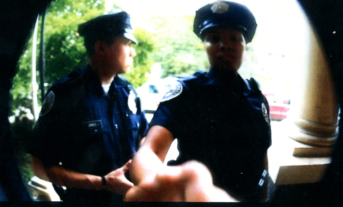There are 3 types of Law Enforcement Encounters (with the police), as described below.
1. The Consensual “Voluntary” Encounter:
The 1st type is termed a “consensual encounter.” Consensual encounters do not require reasonable suspicion or probable cause as long as a reasonable person would feel free to leave or decline to speak with the police. This first type of interaction might involve a police officer walking up to someone on the street and asking “voluntary” questions. Asking questions like this does not implicate the 4th Amendment, as it is not considered a “search” or “seizure” under the Constitution.
2. Investigative Detention (or a “Terry Stop”):
The 2nd type of encounter is the investigatory detention which is commonly known as a Terry stop. This particular type of police interaction involves a temporary detention. It is not an arrest, but you are also not free to walk away. This does require that the police have “reasonable suspicion.” It is not considered a “seizure” but is a temporary detention that is allowed when there is “articulable suspicion that a person has committed or is about to commit a crime.”
In other words, in some cases, the police can stop someone for purposes of investigating possible criminal behavior — even when there is no probable cause to make an arrest.
The general test to try and determine if a stop/detention is considered a “seizure” (a Terry stop), or just a voluntary consensual stop considers several factors:
- Was there a threatening presence of several officers?
- DId the officers approach the person in a non-public place?
- Did the officer touch the person?
- Did the officers block the person’s path?
- Did the officer display a weapon?
- Did the officer’s language or tone of voice indicate that the person was required to answer?
If the answer to one or more of these questions is “yes”, then the officers must prove they had reasonable suspicion for the stop. If not, th
3. Arrest:
In order to actually put you under arrest, the police must have probable cause to believe a crime has been committed, and that the person arrested was the individual who committed it. An arrest without a warrant is constitutionally valid if the officers had probable cause to make the arrest.
Generally, you will know by the handcuffs and proverbial “Miranda Rights” being read that you are under arrest. If you’re not sure for whatever reason ask, “Am I under arrest?” The officer must tell you if you are being arrested. At the end of the day, knowing whether you are being legally detained, if you are being casually questioned and what rights you have in each circumstance can help make any law enforcement encounter go far more smoothly than if you don’t. With an arrest, the citizen is obviously not allowed to leave and can be (and should be) searched without additional probable cause. A search of the area around the arrested person for weapons and evidence may be permitted without additional probable cause.






















